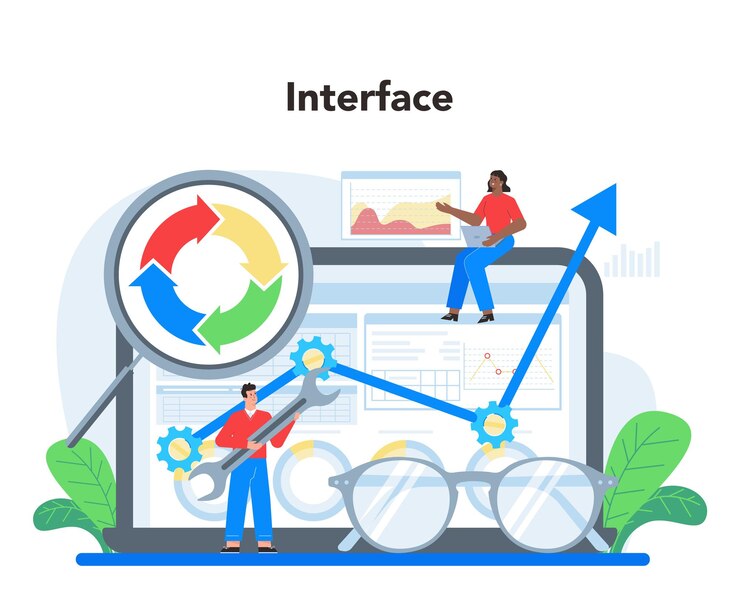Revelation the Power and Challenges of Cloud-Based Performance Testing Services

Introduction:
In the dynamic landscape of software development and deployment, ensuring optimal performance of applications is paramount. With the increasing complexity of modern systems and the need for scalability, traditional performance testing approaches face limitations. Cloud-based performance testing services emerge as a powerful solution, offering a range of benefits while presenting certain challenges that organizations must navigate.
• Benefits of Cloud-Based Performance Testing Services
1. Scalability and Flexibility:
Cloud-based performance testing allows organizations to scale their testing infrastructure based on the specific needs of the application. This flexibility ensures that testing can be conducted under conditions that closely mimic real-world scenarios, providing a more accurate assessment of performance.
2. Cost-Efficiency:
Cloud services offer a pay-as-you-go model, allowing organizations to pay only for the resources they consume during performance testing. This eliminates the need for substantial upfront investments in hardware and infrastructure, making performance testing more cost-effective, especially for smaller organizations.
3. Rapid Deployment:
Cloud-based testing services facilitate quick and easy deployment of testing environments. Teams can provision resources on-demand, reducing the lead time required for setting up infrastructure. This agility is particularly valuable in fast-paced development cycles and Agile methodologies.
4. Global Test Distribution:
Leveraging cloud resources enables distributed testing across different geographical locations. This is essential for applications intended for a global user base, as it helps identify and address performance issues that may arise due to varying network conditions and user locations.
5. Realistic Load Testing:
Cloud-based services allow organizations to simulate realistic user loads by accessing a vast network of servers. This ensures that performance testing reflects actual usage scenarios, providing more accurate insights into how the application performs under different conditions.
6. Automated Testing Integration:
Cloud-based performance testing seamlessly integrates with automated testing frameworks. This synergy allows for continuous performance testing within DevOps pipelines, ensuring that any performance issues are identified and addressed early in the development process.
7. Resource Efficiency:
Cloud platforms offer efficient resource management, enabling organizations to allocate and deallocate resources dynamically. This ensures optimal resource utilization during testing and helps prevent over-provisioning, leading to more cost-effective testing processes.
8. Improved Collaboration:
Cloud-based performance testing services facilitate collaboration among geographically dispersed teams. Testing environments and results can be easily accessed and shared, fostering better communication and collaboration among developers, testers, and other stakeholders.
• Challenges of Cloud-Based Performance Testing Services
1. Security Concerns:
Security is a primary concern when utilizing cloud services for performance testing. Organizations must ensure that sensitive data used in testing is adequately protected and that the chosen cloud provider adheres to robust security measures and compliance standards.
2. Data Privacy and Compliance:
Adhering to data privacy regulations and compliance standards becomes critical, especially when dealing with sensitive customer data. Organizations must carefully select cloud providers with strong data protection measures and compliance certifications.
3. Network Latency and Variability:
Testing applications in the cloud introduces network latency and variability, which may impact the accuracy of performance test results. Organizations need to consider these factors and implement strategies to minimize their effects on performance testing outcomes.
4. Dependency on Third-Party Providers:
Organizations relying on cloud-based services are inherently dependent on the reliability and availability of their chosen cloud provider. Any outages or disruptions in service may impact the ability to conduct performance tests, causing delays in the testing process.
5. Limited Control Over Infrastructure:
While cloud-based services offer scalability, organizations may have limited control over the underlying infrastructure. This lack of control can make it challenging to fine-tune the testing environment to match specific requirements or address unique testing scenarios.
6. Integration Challenges:
Integrating cloud-based performance testing into existing workflows and processes can be challenging. Organizations need to invest time and effort in ensuring seamless integration with their development, testing, and deployment pipelines.
7. Cost Management:
While cloud-based testing can be cost-effective, organizations must carefully manage and monitor resource usage to avoid unexpected costs. Oversights in resource allocation or inadequate monitoring can lead to higher-than-anticipated expenses.
8. Learning Curve:
Transitioning to cloud-based performance testing services may require teams to acquire new skills and knowledge. The learning curve associated with adopting new tools and methodologies can temporarily slow down the testing process.
Conclusion
In conclusion, cloud-based performance testing services offer a myriad of benefits, from scalability and flexibility to cost efficiency and global test distribution. However, performance testing service company must navigate challenges related to security, data privacy, network variability, and integration. By carefully addressing these challenges and leveraging the strengths of cloud-based testing, organizations can ensure the optimal performance of their applications in the ever-evolving landscape of software development.











